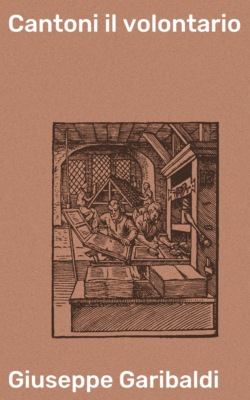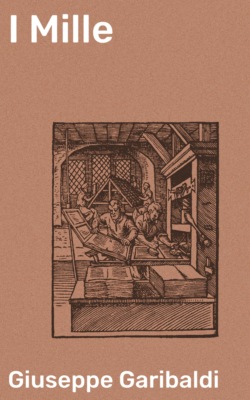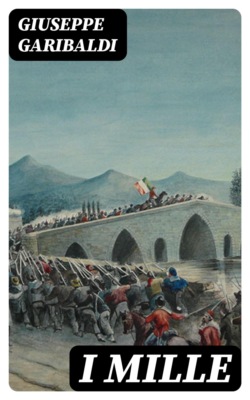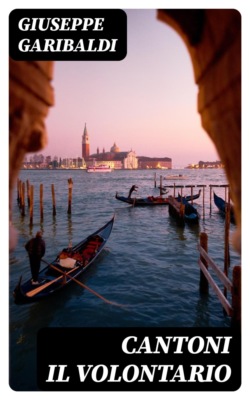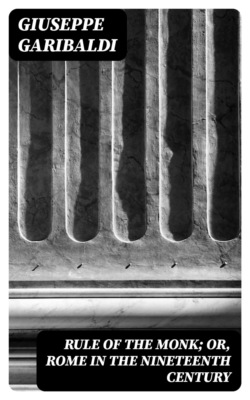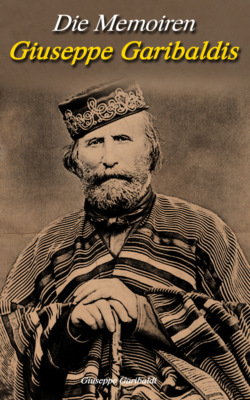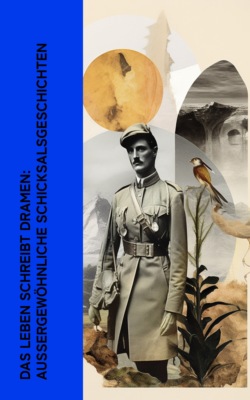Kitabı oku: «The Life of General Garibaldi», sayfa 7
CHAPTER XVII
CONDITION OF THE ITALIANS IN MONTEVIDEO, AND ELSEWHERE – MY WISHES AND DESIGNS FOR THEIR BENEFIT – IN COMMAND OF THE "CONSTITUCION" – AT MARTIN GARCIA – A BATTLE WITH THE ENEMY – PROVIDENTIAL RESULTS – PROCEED TO BAJADO – AT CERITO – ANOTHER FIGHT – CAVALLO-QUATTIA – LOW WATER – JOIN THE REPUBLICAN FLOTILLA – LABORS AND DIFFICULTIES
There were many Italians in Montevideo, whose condition and feelings I soon learned to appreciate. They were regarded with scorn by many of the other foreign residents, especially the French, who were in much greater numbers, and seemed to take pleasure in humiliating my poor and injured countrymen.
This was not the first case, though one of the most marked and unrighteous, in which the wronged and suffering party were made to bear the reproach of those very traits of character displayed by their strong and false-hearted conquerors. In exile and poverty, under the bitter and hourly personal experience of their national misfortunes, and reproached by the world with having brought them upon themselves, the Italians in South America were depressed and disheartened by their gloomy recollections, their present sorrows and their cloudy future. Many of them were occupying themselves with such labors and business as they could find or invent, to obtain the means of subsistence, and laying the foundations of the fortunes which they have since accumulated by industry and economy; but few formed any sanguine expectations of gaining that distinction for military prowess, which the more numerous and vaunting Frenchmen around them then arrogated to themselves. I, however, ere long, began to indulge in more daring anticipations; and the sequel will show the results.
I resolved to find employment for some of them, and to raise the courage and hopes of all, and at the same time to prepare them for future service as soldiers in Italy, by bringing them into the service which was offered to myself. My progress and success will be seen in the following chapters.
On my entering the service of the Oriental Republic, I received the command of the sloop of war "Constitucion." The Oriental squadron was under the command of Colonel Cahe; the enemy under the orders of General Brown. Several battles had taken place, but with results of but little consequence. At the same time a man named Vidal was appointed Minister General of the Republic, – a person of unfortunate and despicable memory. One of his first and most fatal steps was, to gain the dislike of the squadron, which proved highly injurious to its condition, which had cost the Republic immense sums, and which, if it had been cherished as it might then have been, would have established a marked preëminence in the Rio de la Plata, but which was completely ruined, by selling the vessels at shamefully low prices.
I proceeded up the river with the vessels. We had an engagement with the batteries of Martin Garcia, which are situated near the confluence of the two great rivers Paraná and Uruguay, near which I had to pass, as there was no other channel for large vessels. I had several killed and wounded, and passed on. Among the dead was the brave Italian officer, Pocaroba, whose head was taken off by a cannon shot.
Three miles beyond Martin Garcia, the Constitucion was careened, but unfortunately at a time when the tide was falling; and it cost an immense amount of labor to get her afloat again. It was only due to the most persevering labor, that the flotilla was saved from being lost in those dangerous circumstances. While employed in removing heavy articles on board the Procida, the enemy's squadron appeared on the other side of the island, approaching under full sail. I was thus placed in a terrible condition, – the larger of my vessels lying on the sand, and deprived of her heaviest guns, which were placed in the Procida; the Procida being in consequence useless; and no vessel remaining except the Terceira, whose brave commander was near me with the greater part of his crew, assisting in his work.
In the meantime the enemy moved on proudly, presenting a superb sight, and hailed by the acclamations of the troops on the island, assured of victory, with seven strong ships of war. But I felt no despair – a feeling which I have never known. The cause I have never pretended to give. I did not think of my life at that moment; that appeared to me of little value: but it seemed that dying would not save honor, and it was impossible to fight in my position. Providence extended his hand over my destiny, and I desired no other. The ship of the Admiral grounded near the island; his pride was humbled, and the Republicans were safe. The enemy's misfortune redoubled their alacrity; in a few hours the Constitucion was afloat, and received her guns and loading. "Misfortunes never come single," says the proverb. A very thick fog concealed us, and everything we did, from the eyes of the enemy; and favored us greatly, by preventing them from knowing which way we went. This was of the greatest advantage: for, when the Imperialists got their ships under way, being ignorant of the direction we had taken, they sailed to pursue us, and went up the Uruguay, which we had not entered, and they consequently lost many days before they learned our course.
In the meantime I had entered the Paraná, under cover of the fog and with the favor of the wind. I had the direction of the whole operation, and must pronounce it one of the most arduous of my life. But certainly, in that day, the pleasure afforded by the escape from that imminent danger, and the solicitude caused by reflecting on the greatness of the enterprise were embittered by the stupor and disaffection of my companions, who until that moment had believed they were going to the Uruguay. All declared that they were unacquainted with the Paraná, and that they refused all responsibility from that moment. Responsibility was of little importance to me; but something was to be done in some way or other. After a few inquiries, one man confessed that he knew a little of the river, but that he was confused by his fears; however, he was soon able to collect himself, and proved useful. The wind favoring, we soon arrived near San Nicolas, the first town in the Argentine territory, which is situated on the right shore of the river. There we found a few merchant vessels, which were wanted for transports and other service, and, in a night expedition with launches, both were obtained. An Austrian, named Antonio, who had been trading for a long time in the Paraná, was among the prisoners, and he rendered important services in the voyage.
Proceeding up the river, we met with no obstacle until we reached Bajada, where was the army of Ouribes. I operated in the transit. Some landed to find fresh provisions, which consisted chiefly of oxen, in which they were opposed by the inhabitants, and some troops of cavalry stationed there to guard the shore. Several partial engagements took place on that account – with some advantages and losses, sometimes on one side and sometimes on the other – in one of which I had the great affliction of losing the brave Italian officer, Lalberga di Leone, a youth of surprising valor and of most promising genius. Another monument, therefore, was demanded for another son of the land of misfortune, who, like so many more, had hoped to shed his blood for the redemption of his country.
At Bajada, the capital of Entre Rios, where the army of Ouribes was stationed, I found the most formidable preparations on my arrival; and a battle seemed at first inevitable: but the wind being favorable, and we being able to pass at a considerable distance from the enemy's batteries, but little effect was produced by the heavy cannonade which was made by them. At Las Conchas, a few miles above La Bajada, I effected a landing by night, which procured me fourteen oxen, in spite of strong opposition made by the enemy. My men fought with great bravery. The enemy's artillery followed the coast, and profiting by the contrary wind and the narrowness of the river, cannonaded us whenever they could. At Cerito, a position on the left bank of the stream, they established a battery of six guns. The wind was favorable, but light; and at that point, on account of the crookedness of the river, our vessels had to sail in face of them, so that it was necessary to go about two miles under a battery, which was as if suspended over our heads. A resolute battle was fought at that place. The greater part of my men seemed unable to rise, and did not show themselves. The others, at their guns, fought and labored with great alacrity. It should be remembered that the enemy belonged to a party rendered proud by their victory, who soon after conquered, at Arroyo Grande, the two combined armies of Montevideo and Corrientes. Every obstacle was overcome with very little loss; and after having stopped all the enemy's fire, and dismounted several pieces of artillery, a number of merchant vessels, coming from Corrientes and Paraguay, which had been placed under the protection of the enemy's battery, fell into the power of the Republicans with very little trouble. Those prizes supplied us with provisions and means of all kinds.
We then proceeded on our arduous voyage up the river. The enemy watched us in order to throw obstacles in our way; but we arrived at Cavallo-quattia, (or the White Horse,) where we joined the Argentine flotilla, composed of two large launches and a balandra armed as a war-vessel. We were thus supplied with some fresh provisions, so that our condition was much improved. We had good and experienced men, but a reinforcement was agreeable enough, especially in its effects on the habits of our men. Having thus proceeded as far as the Brava coast, we were obliged to stop on account of the shallow water, the difference of which, with the draft of the Constitucion, was four palms. These difficulties began to excite some suspicions in my mind, concerning the final result of the expedition. I had no doubt that the enemy would do their utmost to defeat it; for if it should arrive at Corrientes the injury would have been very great to the enemy, by the Republicans having command of an intermediate part of the river, by holding an intermediate position between the interior provinces, the Paraguay and the capital of the Argentine confederation. It would have been a kind of nest of corsairs, to infest and destroy the enemy's commerce.
The enemy accordingly resorted to every measure for our ruin; and they were greatly favored by the want of water in the river, which was altogether unexampled for half a century, according to the declaration of Governor Ferri, of Corrientes. It being impossible to proceed further, I determined to put the flotilla in the best possible state for resistance. From the left bank of the Paraná, where the depth of water was greatest, I drew a line of vessels, beginning with a merchant yate, in which were placed four guns; the Terceira in the middle, and the Constitucion on the right wing, thus forming a row, at right angles to the shore, and presenting to the enemy all the force possible.
CHAPTER XVIII
THE ENEMY APPEAR UNDER GENERAL BROWN – WE FIGHT – LABORS AND FATIGUE BY NIGHT – DESERTION – PREPARATIONS TO RENEW THE BATTLE – ANOTHER FIGHT – VESSELS BURNED – LANDING IN SMALL BOATS – LAND TRAVEL – TREATMENT BY THE INHABITANTS – TRAVERSE THE PROVINCE OF CORRIENTES – REACH SAN FRANCISCO – NOTICE OF THE BATTLE OF ARROYO GRANDE, DEC. 6, 1842 – SENT BY GEN. AGUYAR TO VESSILLES WITH THE VESSELS – STRANGE PRESENTIMENT – CATCHING HORSE – BAD NEWS
This arrangement cost much labor, in consequence of the current, which, although small, in that open place, required the use of all the chains and cables to anchor the vessels, especially the Constitucion, the heaviest of all. These labors were not terminated when the enemy made their appearance with seven vessels, a superior force, and in a situation where they could receive reinforcements and supplies of every kind. The Republican flotilla, on the contrary, was far from Corrientes, the only part of the country from which they could obtain assistance, and where it was almost certain no aid would be received, as the result proved to be too true. It was thought necessary, however, to fight, at least for the honor of arms; and an engagement ensued.
The enemy, under the command of General Brown, who enjoyed the highest reputation as a maritime officer in South America, and justly, too, proceeded in all the confidence of their power. They had a favorable wind though a light one, keeping along the left bank, the right being impracticable. As I had command of the left bank, on which rested the left flank of his line, I landed part of my soldiers and sailors, to dispute the enemy's advance, inch by inch. The Republicans fought bravely, and greatly retarded the enemy's advance; but the superior force of the latter prevailed, and the former were driven under the protection of their vessels. Major Pedro Rodriguez, who commanded our force on land, fought that day with all imaginable skill and valor. He placed the outposts towards evening; and thus they remained through the whole night, both parties preparing for battle on the following day.
The sun had not risen on the 16th of June, when the enemy began a cannonade, with all the force which they had been laboring to bring to the front in the night. The battle was then commenced; and it continued without interruption till nightfall, being sustained on both sides with great resolution. The first victim on board the Constitucion was again an Italian officer, of great bravery and of the highest promise, Guiseppe Barzone; and I regretted that I could not take charge of his remains, in consequence of the fury of the contest. Much damage was done on both sides. The Republican vessels were riddled and shattered. The corvette, in consequence of not having her shot-holes accurately stopped, leaked so much that she could not be kept afloat without great difficulty, the pumps being at work without cessation. The commandant of the Terceira had been killed in a most daring enterprise by land against the enemy's vessels. In him I lost my best and bravest companion. The killed were numerous, and still more the wounded. The remaining time I was constantly occupied on account of the sinking condition of the vessels. However, there were still powder and shot on board, and we must fight – not for victory, not to save ourselves, but for honor. Some men laugh at the honors of a soldier; but Italians have given strong proof of the existence and power of such a principle in their breasts, particularly in other places and at a later period than that to which we are now attending, especially when Rome was surrounded by the armies of four nations, in 1849, and long defended herself. Those who scoff at the idea of honor in an honest soldier who fights for his friends and country, can too often show base respect for men who abuse and assassinate their fellow-beings, or who claim to be the supporters of their political or religious opinions, though they may be monsters in cruelty or infamous in vice, especially if surrounded with the power of the great or the splendor of courts.
We fought for honor, although six hundred miles distant from Montevideo, with enemies from all quarters, after a series of battles, privations and misfortunes, and almost sure of losing everything. In the meantime Vidal, the minister of war of the Republic, squandered doubloons to support his splendid banquets, in the first capitals of Europe. Such is the honor of the world! It is thus that the lives of generous Italians are despised and sacrificed, and they are buried in a land of exile, in the continent of their countryman, Columbus, or in other regions of the earth. Such was Castelli, who was beheaded at Buenos Ayres; Borso di Carminati, shot in Spain; – and this, although they were superior men, and had rendered great services to ungrateful foreigners.
Their sympathy those foreigners have shown for thee, O Italy! when thy aged and venerable head was raised for a moment in Rome, from the lethargy of opprobrium in which thy oppressors had conspired to hold thee, thou Mother, Instructress and Mistress of Nations! When thou once more shalt rouse thyself, they will tremble at the defeat of their united powers, combined in the league of Hell, to oppress and degrade thee. Be great, then, once more, O Italy! and then the powerful voice of the Almighty will be heard by all thy sons; and the hungry and cowardly vultures which destroy thee, will be stunned by its thundering sound.
On the night of the 16th all my men were occupied in preparing cartridges, which were almost entirely exhausted, and in cutting up chains to supply the want of balls, and in the incessant pumping of the leaky vessels. Manuel Rodriguez, the same Catalonian officer who had been saved with me from shipwreck on the coast of Santa Caterina, was occupied, with a few of the best, in fitting up several merchant vessels as fireships, with the greatest possible quantity of combustibles, and directing them towards the enemy. That expedient incommoded them during the night, but did not produce the effect desired; the chief defect of the Republicans being the extreme scarcity of men. Between the various mishaps of that dreadful night, that which most afflicted me was the defection of the little squadron of Corrientes. Villegas, the commandant, like many others whom I have seen bold in a calm, became so much terrified by approaching danger, that it was impossible to make him useful in any way to the allied vessels, although they were manned with good sailors, and fitted for any kind of service on the river, by their swiftness. Seeing Villegas not quite self-possessed, I ordered him to take his place behind the line of battle, where I had placed the hospital – a small vessel destined to that use. Towards evening he sent me word that he had changed his position to a short distance, for what motive I could not imagine. Needing his coöperation in the work of the fireships, I sent for Villegas in the night, and received the alarming news that he was nowhere to be found. Not being willing to think him capable of so much treachery, I went myself in a light palischermo, to satisfy myself of the truth. Not finding him, I proceeded several miles towards Corrientes, but in vain; and I returned, in bitterness of soul. My fears were unhappily too well founded, for most of the little vessels were destroyed in the service before the engagement began. I had counted on the Correntine vessels to receive the wounded and to contain the provisions necessary for all, as we were still far distant from the inhabited frontier of Corrientes. My last hope was now lost, by a cowardly retreat, which is the greatest of crimes when committed in the moment of danger.
I returned on board my vessel a short time before daybreak. A fight was inevitable, but I saw nothing around me but men lying down overcome with fatigue, and heard no sound except the lamentations of the unfortunate wounded, who had not yet been transported to the hospital. Being now unable to wait any longer, I gave the signal and ordered the men to their stations. I gave the orders and spoke a few words of comfort and encouragement, which were not in vain, as I found my companions, although spent with fatigue, with spirit remaining which could yet be excited. They replied with a general cry for battle, and every man was immediately at his post. The engagement was recommenced when it was hardly light; but, if the advantage appeared to be on our side in the previous affair, we now decidedly had the worst. The new cartridges had been made of bad powder; we had used all the balls of proper size for the calibre of the guns, and those we now had were smaller, and, therefore, in going out, did much injury to the pieces, which had before done such service against the enemy. The latter observed the weakness of our fire, and being then informed of our condition by some deserters, showed great joy, while their vessels, which were unable the day preceding to form a line, now effected it in security. Thus the condition and prospects of the Republicans were growing worse and worse, while those of their enemies every moment improved. At length a retreat became necessary, not with the vessels, for it was impossible to move them from their positions, in consequence of their broken condition, the want of water, and the miserable state of the crews. Nothing could be hoped for but the saving of their lives. I therefore gave orders for landing, in a few small boats which remained, the wounded, the arms, the little ammunition left, and all the provisions which they were able to take. In the meantime the fight continued; although on our part but very feebly, but with redoubled vigor by the victorious enemy.
The matches were then prepared, and the firemen stood ready to burn the vessels. All was ready; and, with the few men remaining with me, I got into the boats. The enemy, on discovering our preparations for debarking, naturally inferred our design of retreating, and put all their infantry on the march, to attack us. I was not disposed to meet them, with such inequality of numbers and arms, and in the condition of the enemy's infantry. Besides, an open river was to be crossed. But the burning of the vessels, by the Santa Barbara operation, blowing-up, was performed in a terrible manner, and gave the enemy clear notice of our movements.
The scene presented by the burning flotilla was very striking. The river lay as clear as crystal; and the burning cinders fell on both its banks, while a terrible noise of explosions was continually heard.
Towards evening, in our little boats, we approached the River Espinillo, and encamped on its right bank. During the voyage to Esquina, the first town in Corrientes, we spent three days, proceeding very painfully among islands and ponds, and reduced to one ration a day, consisting of a single biscuit, without anything else to eat. On reaching Esquina, our condition was considerably improved; the wounded were placed under shelter; and the men had meat in abundance. The inhabitants, who were good Republicans, showed us the greatest hospitality.
We spent some months in the Province of Corrientes, without the occurrence of anything important. At length the Governor formed a plan to arm a flotilla of small vessels; but succeeded in nothing but losing time. I then received orders from Montevideo to march to the scene of revolution in San Francisco, in Uruguay, and place myself and my forces at the disposition of General Rivera, who was stationed with an army in that neighborhood.
I then traversed the entire territory of Corrientes, from Santa Lucia to the Pass of Higos, on the Uruguay. Going through the Pass, we arrived at San Francisco, partly by the river and partly by land. At the Falls I had the pleasure of meeting Anzani, then transformed into a merchant. Having reached San Francisco, I there found several vessels of war, of which I took the command. General Rivera had gone into Entre Rios, with the army, where the army of Corrientes was to meet him, and go to attack that of Ouribes. On the 6th of December, 1842, occurred, at Arroyo Grande, the celebrated battle in which the nation fought for their sacred rights; but the power of a tyrant triumphed. Different circumstances led to this result, which would require much time to give in detail: but the chief cause was the discord fomented by the ambition of a few, which plunged all into disaster, and exposed them to extermination by an implacable conqueror. Oh, virtuous and generous people! The same fortune befel Italy at a later day, which was suffered by the provinces of La Plata, and brought about by the same cause, which was sent by Heaven in wrath.
At San Francisco, where I found General Aguiar staying on account of his health, I remained only a short time, when I received orders from him to collect all the disposable forces, and a few hundred militia, called Aguerridos, commanded by Colonel Guerra, and march to the Pass of Vessilles, to coöperate actively with the enemy. I reached that place with the vessels, and there found the remains of the army's residence, but not a single person. I sent scouts, to search the surrounding country; but discovered nothing! That day was the fatal sixth of December; and every man had been called to the field of battle, which was decided at the distance of eighteen miles from the spot, on the bank of the Arroyo Grande. There sometimes seems to be something in the depths of our minds superior to understanding; at least so it seemed to me on that occasion. Without pretending to explain it, I thought I felt its effects; which, although in a confused manner, seemed something like looking into the future.
On that day I felt a solemn impression on my heart, mingled with bitterness, like the feelings of warriors left languishing on a field of battle, and trampled on by the insolent soldier, by the hoof of the war-horse of the cruel, the implacable conqueror. Very few were saved from that terrible battle; and the whole band, with me, experienced feelings difficult to describe, indeed, quite unspeakable. Sadness was mingled with a prevailing presentiment of disaster. Not being able to find any living being who could give information of the army, and having no orders from General Aguiar, I resolved to land all the troops, leaving only a small number in the boats, and to march in search of the army. It should be remarked, that I always pursued my favorite system of the Rio Grande, and never marched without a contingent of cavalry, taken from my amphibious companions in misfortune, men who had been thrown out of the cavalry of the army, for some fault or perhaps some crime, but who fought well, and whom I severely punished when they deserved it.
Although no human beings were to be found in that region, we caught a number of horses which had been abandoned, and obtained a sufficient supply for the service. The abundance of horses in those countries greatly facilitates such an operation. All things were soon ready; and I was on the point of giving the order for marching, when, well for me, an order was received from General Aguiar, recalling me to San Francisco. But for this, I and my troops would doubtless have fallen victims: for the army was so completely broken up on that day, that it would have been impossible to find anything but the mere wreck of it, while we must have met the victorious enemy, from whom escape would have been very difficult, if not impossible.
The troops, therefore, reëmbarked, without the object being known even to their commander, and without obtaining any news whatever of the events of the day. On reaching San Francisco, I received a note from Colonel Esteves, beginning with the following terrible words:
"Our army has suffered a reverse!"
General Aguiar had marched along the left bank of the Uruguay, to collect the fugitives, and requested me to stay in San Francisco, to guard the great quantity of materials of every kind remaining there.

